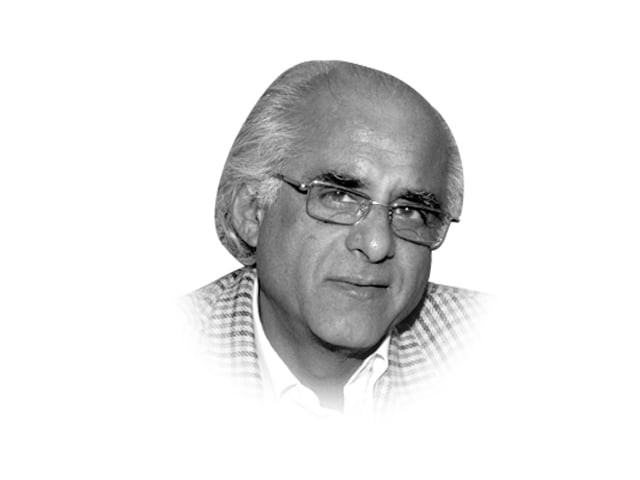Alexander as Zulqarnain
We stretch words of scripture to make Zulqarnain fit into Alexander’s shoes, because he defeated a Hindu Punjab king.

Now, it was well known that Helen of Troy, said the man, was the wife of Alexander the Macedonian. When she died, Alexander ordered this tomb. Inside, sits an ornate sandstone sarcophagus radiant with flowing curvilinear forms and calligraphy that tells us that the tomb is the last resting place of some Ali Beg. But that did not matter to my new friend.
Later, in nearby Mong, the village that takes its name from the Scythian King Maues (1st century BCE), known as Moga in Punjabi, I got another educational boost. Seeing that I was on the trail of Alexander, a rather contrary sort of middle-aged man took me under his wing. He spoke of the Macedonian’s victory over Raja Paurava (Greek: Porus) with admirable pride and how folks named their sons after the Macedonian. I asked if folks ever named a son after Paurava, he being one of our own. Pat came an angry, “Kyon? O koi Musalman cee?” Islam being nearly a millennium in the future, Raja Paurava was certainly no Muslim. But then neither was Alexander. On another similar occasion, my interlocutor burst out with an incredulous half-question, half-statement, “Alexander was Hindu?”
Interestingly, even semi-educated persons in Pakistan cannot imagine a religion like the Greeks had, with a large pantheon of mostly fun-loving gods. They are caught in a mental box with four names — Islam, Hinduism, Christianity and a very distant and vague Judaism. No other religion appears on their radar.
This man in Mong was smarter, however. He countered with the statement that Alexander was mentioned in the Holy Quran. The king we so desperately want to turn into Alexander is the Quranic Zulqarnain whose name means ‘Two-Horned’. He travelled across the great expanse of the world, ruled over a vast kingdom and was responsible for locking away the dreaded nation of Gog and Magog behind a rubble wall steeped in molten lead. This king, we read, travelled to the rising and setting places of the sun. That is, his sway extended across much of the known world of his time.
But scripture does not reveal anything beyond this short reference. Now, there were two famous world-conquering kings in history who wore horns on their helmets. Cyrus the Great (ruled BCE 549-529) of Persia and, 200 years later, Alexander of Macedonia. Indeed, the latter’s depiction on coinage with diadem and ram’s horns is very well known.
Now, both were great conquerors, therefore, either could be Zulqarnain. But mark: Cyrus established a kingdom only marginally smaller than Alexander’s.
This kingdom lasted 200 years until Alexander unravelled it and became master of it. Alexander’s kingdom was larger. His governors presided on the affairs of men from Thrace (Bulgaria) through the Scythian steppes on the northern shores of the Black Sea, to the banks of the Jaxartes (Syr) River (in Uzbekistan) and across the entire Persian Empire, Afghanistan, Punjab and Sindh to Babylon. But it was a short-lived empire, lasting just over a decade until Alexander’s death in 322 BCE.
So, really, which king was it that scripture refers to as the ‘Two-Horned’? If greatness were a measure in terms of longevity of kingdom, I would vote Cyrus. However, Alexander who did indeed embody traits that could arguably be termed ‘great’ left behind a kingdom that did not last beyond his own lifetime.
But we, in Pakistan, embrace him. We stretch the words of scripture to make Zulqarnain fit into Alexander’s shoes. We do this only because he, an outsider, defeated a king of Punjab who, unfortunately, was a Hindu. We disregard the fact that Raja Paurava (of whose greatness of character I have written earlier in this column) was a Hindu because he predated Islam.
Published in The Express Tribune, November 18th, 2012.















COMMENTS
Comments are moderated and generally will be posted if they are on-topic and not abusive.
For more information, please see our Comments FAQ